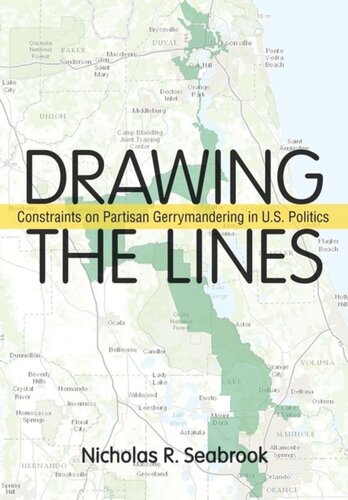

Most ebook files are in PDF format, so you can easily read them using various software such as Foxit Reader or directly on the Google Chrome browser.
Some ebook files are released by publishers in other formats such as .awz, .mobi, .epub, .fb2, etc. You may need to install specific software to read these formats on mobile/PC, such as Calibre.
Please read the tutorial at this link: https://ebookbell.com/faq
We offer FREE conversion to the popular formats you request; however, this may take some time. Therefore, right after payment, please email us, and we will try to provide the service as quickly as possible.
For some exceptional file formats or broken links (if any), please refrain from opening any disputes. Instead, email us first, and we will try to assist within a maximum of 6 hours.
EbookBell Team

4.3
78 reviewsRadical redistricting plans, such as that pushed through by Texas governor Rick Perry in 2003, are frequently used for partisan purposes. Perry's plan sent twenty-one Republicans (and only eleven Democrats) to Congress in the 2004 elections. Such heavy-handed tactics strike many as contrary to basic democratic principles. In Drawing the Lines, Nicholas R. Seabrook uses a combination of political science methods and legal studies insights to investigate the effects of redistricting on U.S. House elections. He concludes that partisan gerrymandering poses far less of a threat to democratic accountability than conventional wisdom would suggest.Building on a large data set of the demographics of redrawn districts and subsequent congressional elections, Seabrook looks less at the who and how of gerrymandering and considers more closely the practical effects of partisan redistricting plans. He finds that the redrawing of districts often results in no detrimental effect for district-level competition. Short-term benefits in terms of capturing seats are sometimes achieved but long-term results are uncertain. By focusing on the end results rather than on the motivations of political actors, Seabrook seeks to recast the political debate about the importance of partisanship. He supports institutionalizing metrics for competitiveness that would prove more threatening to all incumbents no matter their party affiliation.